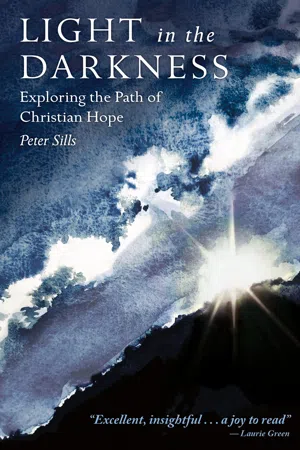Notes
Prologue
1 The earliest part, chapters 1 to 39, dates from the eighth century BC, and is based on the oracles of Isaiah of Jerusalem, an eloquent prophet after whom the book is named, and who was much concerned with the threat to Israel from Assyria. The second part, chapters 40 to 55, dates from the Exile to Babylon in the sixth century BC and is based on the work of an unknown prophet, generally referred to as Second Isaiah, but whom I prefer to call Isaiah of Babylon. The final part, chapters 56 to 66, dates from later in the sixth century, when the Exile had ended. Scholars identify several authors, the major section being ascribed to a disciple of Isaiah of Babylon, known as Third Isaiah.
2 Rowan Williams, Faith in the Public Square (London: Bloomsbury Continuum, 2012), p. 5.
3 Historically, the opposition has come from across the political and religious spectrum; today it comes mainly from the religious right. In the USA, for example, the visceral opposition to Pope Francis among wealthy catholics is motivated by a world view based on the tenets of neo-liberal economics rather than the gospel. Theologians of similar mind offer support, among them Michael Novak (who describes himself as a “neo-conservative”), who has reinterpreted the concept of social justice in a way that is consistent with his political stance, reducing it to no more than social activism: Michael Novak, The Catholic Ethic and the Spirit of Democratic Capitalism (New York: The Free Press, 1993), p. 77. On the opposition to Pope Francis, see Christopher Lamb, The Outsider: Pope Francis and his Battle to Reform the Church (New York: Orbis Books, 2020).
4 Pankaj Mishra, Age of Anger: A History of the Present (London: Penguin Random House UK, 2017), pp. 16 and 21.
5 Rowan Williams, “Ethics and Globalisation”, The Hugh Kay Memorial Lecture 2001, pp. 16–17.
6 Mishra, Age of Anger, p. 18.
7 Donal Dorr, whom I quote later, discusses the disconnection between uniformity and unity in Spirituality and Justice (Dublin: Gill & Macmillan, 1984), p. 105.
8 John Gray, Enlightenment’s Wake: Politics and Culture at the Close of the Modern Age (London & New York: Routledge, 1995).
9 Mishra, Age of Anger, p. 289.
10 The quotation was used in a seminar I attended at Douai Abbey some years ago; alas, I did not note the reference.
11 Mishra, Age of Anger, p. 346.
12 Edward Schillebeeckx, tr. John Bowden, Jesus in our Western Culture: Mysticism, Ethics and Politics (London: SCM Press, 1987), p. 19.
13 Schillebeeckx, Jesus in our Western Culture, p. 21.
14 My use occasionally of the male personal pronoun to refer to God should not be understood as implying that God is of the male gender; God is beyond gender, and generally I avoid gendered pronouns. However, some alternative formulations are clumsy, and terms like “Godself” strike me as inelegant, so sometimes I use the traditional formulation.
15 John Macquarrie, Christian Hope (London & Oxford: Mowbray, 1978), p. 13.
16 Jürgen Moltmann, tr. James W. Leitch, Theology of Hope: On the Ground and the Implications of a Christian Eschatology (London: SCM Press, 1967), p. 26. The biblical reference is Revelation 21:5.
17 Cf. Moltmann, Theology of Hope, p. 20.
18 Exodus 32.
19 Moltmann, Theology of Hope, p. 102.
20 This quotation, a reworking of the words of 1 John 1:5, is generally ascribed to Michael Ramsey, although some say it originated with John V. Taylor. It can be found in Michael Ramsey, God, Christ and the World: A Study in Contemporary Theology (London: SCM Press, 1969), pp. 37 and 41, while John V. Taylor took up the phrase in his book The Christlike God (London: SCM Press, 1992).
21 The reply can also be translated, “I will be who I will be,” adding a further layer of meaning. Donal Dorr suggested that it is best translated, “I am the one who will be with you” —implying that God is the one who will be leading them out of slavery into freedom (Spirituality and Justice, p. 87).
22 John 6:35; 8:12; 10:7; 10:11; 11:25; 14:6; 15:1; Revelation 1:8; 21:6; 22:13,16. Although ascribed to Jesus, the general scholarly opinion is that these sayings were not actually spoken by him, rather that they express the belief of the Church, guided by the Holy Spirit, about the nature of God’s self-disclosure in Christ.
23 Daniel B. Stevick, Jesus and His Own: A Commentary on John 13–17 (Grand Rapids, MI & Cambridge: Eerdmans, 2011), pp. 124–5.
24 Rowan Williams, Being Disciples (London: SPCK, 2016), pp. 29–30.
25 T. S. Eliot, “East Coker”, Four Quartets (London: Faber and Faber, 1959 [1944]), p. 24.
26 Ibid.
27 Rowan Williams, Being Human: Bodies, Minds, Persons (London: SPCK, 2018), p. 56.
28 T. S. Eliot, “East Coker”, Four Quartets, p. 25.
29 Macquarrie, Christian Hope, p. 20.
30 From a sermon given by Bishop David Conner in Ely Cathedral, 25 November 2007.
Chapter 1
1 Stevick, Jesus and His Own, p. 352. Cf. 1 John 2:4: “Whoever says, ‘I have come to know him,’ but does not obey his commandments, is a liar, and in such a person the truth does not exist . . . ”. Emphasis added.
2 From The Psalms: A New Translation © 1963 The Grail (England) published by HarperCollins and used with permission.
3 Isaiah 45:23: “It is truth that goes forth from my mouth, a word beyond recall” (Douai Rheims). Other translations are slightly different, but with the same sense, e.g. “ . . . what comes forth from my mouth is saving justice, it is an irrevocable word” (New Jerusalem Bible). For Isaiah of Babylon, see Prologue note 1.
4 Stevick, Jesus and His Own, p. 124.
5 Richard Gaillardetz, “Is the Pope a Catholic?”, The Tablet, 7 October 2017.
6 Gerhard von Rad, tr. James D. Martin, Wisdom in Israel (London: SCM Press, 1972), p. 289.
7 T. S. ...
